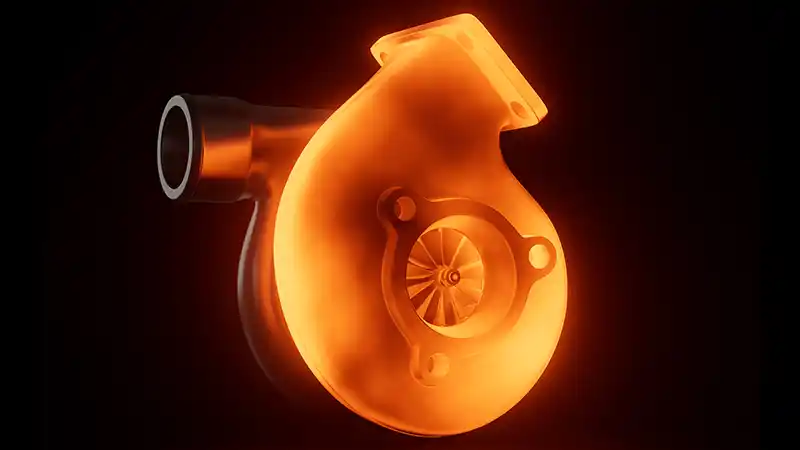In the world of commercial trucking, every mile matters and every dollar counts. Whether you’re an owner-operator hauling freight across the country or a fleet manager overseeing dozens of vehicles, the threat of an unexpected breakdown is never far from mind. A blown engine, failed transmission, or faulty electronics can sideline your truck for days, and leave you staring down a repair bill that could wipe out months of profit.
That’s why truck warranties are more than just a line item on your expense sheet, they’re a critical tool for protecting your business, your drivers, and your peace of mind. But not all warranties are created equal. The world of truck warranties can feel like a maze: manufacturer coverage, third-party plans, exclusions, fine print, and endless choices.
This guide is here to help you cut through the confusion. We’ll explore what truck warranties are, why they matter, the different types available, and how to choose the best coverage for your operation. Whether you’re new to the industry or a seasoned pro, you’ll find actionable advice to make smarter warranty decisions, so you can focus on what matters most: keeping your trucks rolling and your business growing.
What is a Truck Warranty?
A truck warranty is essentially a promise, a contract between you and a provider (either the manufacturer or a third-party company) that certain repairs or replacements will be covered if something goes wrong with your vehicle. But to truly understand the value of a warranty, it’s important to dig deeper.
Unlike insurance, which protects you from accidents, theft, or liability, a warranty is focused on the internal workings of your truck. It steps in when a covered component fails due to a defect or normal use, taking care of the repair or replacement costs that would otherwise hit your bottom line. For commercial vehicles, where single repairs can reach five or even six figures, this protection can be the difference between profit and loss.
Warranties aren’t just for new trucks. In fact, they’re often even more valuable for used and older vehicles, which are more likely to experience major mechanical issues. And while some warranties are bundled with the purchase of a new truck, others are available for purchase separately, letting you tailor your coverage to your unique needs.
Why Warranties Matter in Trucking
The trucking industry is built on reliability. Every hour a truck is down is an hour of lost revenue, missed deadlines, and frustrated customers. A warranty doesn’t just save you money, it gives you predictability. Instead of bracing for the next big repair bill, you can budget with confidence, knowing that the biggest risks are covered.
But not all warranties deliver the same value. Some are packed with exclusions, slow claims processes, or hidden fees that can leave you stranded when you need help most. Choosing the right warranty, and understanding exactly what it covers, is one of the smartest moves you can make for your business.
Types of Truck Warranties
When it comes to truck warranties, one size definitely doesn’t fit all. The right plan for a brand-new rig is different from what you’ll need for a high-mileage workhorse or a mixed-age fleet. Here’s a closer look at the main types of warranties available in today’s market.
Manufacturer Warranties (OEM)
Manufacturer warranties, also known as OEM warranties, are included with most new trucks and sometimes with certified pre-owned vehicles. These plans are designed to protect against defects in materials or workmanship for a set period or mileage, typically three to five years or up to 300,000 miles, whichever comes first.
- Coverage usually focuses on major systems:
- Engine
- Transmission
- Drivetrain
- Select emission systems and electronics
Repairs must be performed at authorized dealerships, using OEM parts and certified technicians. While this ensures quality, it can also mean higher costs and longer wait times if your truck breaks down far from a dealership.
Limitations of Manufacturer Warranties
The biggest drawback of OEM warranties is their limited duration and scope. Once you hit the time or mileage limit, your coverage ends, often just as your truck is entering the phase when major repairs become more likely. These warranties also tend to exclude “wear and tear” items (like brakes and clutches), routine maintenance, and any damage resulting from improper use or lack of maintenance.
Extended Manufacturer Warranties
If you want to stick with the manufacturer, many OEMs offer extended warranties for an additional fee. These plans typically extend the original coverage for a few more years or miles, but may come with more exclusions and stricter claims processes. The cost can be significant, and it’s important to read the fine print to ensure you’re getting value for your investment.
Third-Party Warranties
Third-party warranties are service contracts offered by independent companies. Unlike OEM warranties, which are tied to new or nearly new vehicles, third-party plans are available for used, older, or high-mileage trucks. They’re especially popular with owner-operators and fleets that want to keep their vehicles protected long after the manufacturer’s coverage expires.
What sets third-party warranties apart is their flexibility. Many plans cover more components, such as electronics, seals, gaskets, HVAC, suspension, and even towing reimbursement, than OEM warranties. They often allow you to choose your own repair shop, which can mean faster service and less downtime.
Payment options are another big advantage. Instead of a large upfront cost, you can often pay weekly, monthly, or annually, and a few plans even come with “no long-term contract” terms, allowing you to cancel if your needs change.
Key Differences: OEM vs. Third-Party
- Eligibility: OEM warranties are for new or certified pre-owned trucks; third-party plans are available for used, older, or high-mileage vehicles.
- Coverage: OEMs focus on major systems; third-party plans often cover more components and offer more flexibility.
- Repair Locations: OEM repairs must be done at dealerships; third-party plans often let you choose any licensed shop.
- Payment Terms: OEM warranties are included in the purchase price; some third-party plans like TruckProtect™ offer flexible payment options.
Key Features to Look For
Not all warranties provide the same protection. To get the most value, it’s crucial to look beyond the headline price and dig into the details.
Coverage Scope
The most important question to ask is: What’s actually covered? Comprehensive plans should include all major systems, engine, transmission, drivetrain, electronics, seals, gaskets, HVAC, brakes, steering, and suspension. Some plans even cover towing, progressive damage, and total loss recovery.
Be wary of plans that are vague or don’t provide a full list of covered components. Exclusions matter, too. Common exclusions include wear and tear, cosmetic damage, routine maintenance, seals and gaskets, and pre-existing conditions.
Claim Process
A warranty is only as good as its claims process. Look for providers with a reputation for fast, hassle-free claims and minimal paperwork. Ask how quickly claims are processed (24–48 hours is ideal) and what documentation is required. The ability to use your preferred repair shop can also save time and money.
Payment Flexibility
Cash flow is king in trucking. Flexible payment options, weekly, monthly, help you budget and avoid large upfront costs. Plans with no long-term contract or commitment let you adapt as your business evolves.
Transparency
Transparency should be non-negotiable. Reputable providers list all covered parts, avoid hidden fees, and offer clear, easy-to-understand contracts. Responsive customer support is another key factor, when something goes wrong, you want help fast.
Why Truck Warranties Matter
For many trucking businesses, a warranty is the difference between stability and chaos. Major repairs aren’t just expensive, they’re disruptive. An engine failure or transmission breakdown can put a truck out of commission for days or weeks, costing you revenue, customers, and even drivers.
A good warranty turns unpredictable disasters into manageable events. Instead of scrambling for cash or relying on expensive credit, you pay a predictable amount and get back on the road faster. This predictability is invaluable for owner-operators, small fleets, and large carriers alike.
Financial Protection
Consider the numbers. A major engine repair can cost $20,000 or more. Transmission replacements, electronics failures, and aftertreatment system issues can each run into the thousands. Without a warranty, a single breakdown can wipe out months of profit, or worse, force you to take on debt.
With a warranty, you’re protected from these catastrophic expenses. Your business can weather the storm, keep drivers paid, and maintain your commitments to customers.
Cash Flow and Budgeting
Predictable costs make it easier to manage cash flow, plan for growth, and invest in your business. Instead of setting aside huge reserves for “what if” scenarios, you can allocate capital more efficiently, knowing your biggest risks are covered.
Fleet Reliability
For fleets, warranties help maximize uptime and reduce the risk of unexpected breakdowns, keeping your operation running smoothly.
Driver Confidence
Drivers want to know they’re supported. Trucks that break down frequently or leave drivers stranded can hurt morale and increase turnover. Warranties help you deliver on your promise of reliability, making it easier to attract and retain top talent.
Choosing the Right Warranty
With so many options, how do you choose the best warranty for your operation? Start with a clear assessment of your needs.
- Truck Age and Mileage: Older trucks and high-mileage vehicles benefit most from comprehensive third-party coverage.
- Usage Patterns: Long-haul, regional, or local routes may affect your risk profile and coverage needs.
- Fleet Size: Mixed-age fleets require flexible solutions; owner-operators may prefer plans tailored to single trucks.
Research providers carefully. Look for fast claims, transparent coverage, and responsive support. Compare plans not just on price, but on what’s included, especially the “must-have” components for your business.
Ask direct questions:
- What’s excluded from coverage?
- How are claims processed, and how quickly?
- Can I use my preferred repair shop?
- Is there a “no long-term contract” option?
- Are there cash-back or loyalty benefits?
Frequently Asked Questions
Are warranties worth it for older trucks?
Absolutely. Older vehicles are more likely to experience major failures, making coverage even more valuable.
What’s usually not covered?
Common exclusions include wear and tear, cosmetic damage, routine maintenance, and pre-existing conditions.
How do I file a claim?
Most providers offer online portals or hotlines. You’ll typically need documentation such as photos, repair estimates, VIN, ECM reports and maintenance records.
Conclusion & Next Steps
Truck warranties aren’t just paperwork, they’re a strategic investment in your business’s future. By understanding your options, asking the right questions, and choosing a provider that offers transparent, flexible coverage, you can protect your trucks, your drivers, and your bottom line.
Ready to take the next step? Compare TruckClub™ plans, explore in-depth guides on manufacturer vs. third-party warranties, uncover the hidden costs of truck repairs, and learn best practices for managing warranties across your fleet. Protect your business today, and drive with confidence tomorrow.











